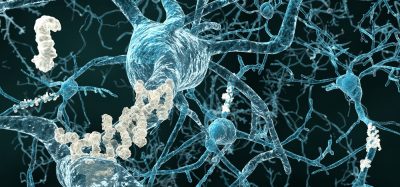Substance abuse inhibits cognitive flexibility
Posted: 13 July 2023 | Izzy Wood (Drug Target Review) | No comments yet
New US research underlines the relationship between substance use and significant modifications to an inhibitory brain circuit, resulting in decreased cognitive flexibility


An estimated 50 million individuals in the United States struggle with the challenges of cocaine or alcohol use disorders, according to the National Institutes of Health (NIH), US.
Beyond the well-documented health risks, addiction to these substances detrimentally affects our cognitive flexibility, which is the ability to adapt and switch between different tasks or strategies. Although previous research has hinted at this connection, the underlying reasons for this cognitive impairment remain elusive.
Cognitive flexibility is a crucial element in various domains of our life, including academic achievement, employment success and transitioning into adulthood. As we age, this flexibility plays an important role in mitigating cognitive decline. A deficiency in cognitive flexibility, however, is linked to academic deficits and a lower quality of life.
An innovative study led by Dr Jun Wang, Associate Professor in the Department of Neuroscience and Experimental Therapeutics at the Texas A&M University School of Medicine, US, provides new insight into the damaging impact that chronic cocaine or alcohol use has on cognitive flexibility. The research, published in the journal of Nature Communication, emphasises the role of the local inhibitory brain circuit in mediating the negative effects of substance use on cognitive flexibility.
Substance use influences a specific group of neurons called striatal direct-pathway medium spiny neurons (dMSNs), with projections to a part of the brain known as the substantia nigra pars reticulata (SNr). Conversely, cognitive flexibility is facilitated by striatal cholinergic interneurons (CINs), which receive potent inhibitory signals from the striatum.
“Our hypothesis was that increased dMSN activity from substance use inhibits CINs, leading to a reduction in cognitive flexibility,” Wang explained.
“Our research confirms that substance use induces long-lasting changes in the inhibitory communication between dMSNs and CINs, consequently dampening cognitive flexibility. Furthermore, the dMSN-to-SNr brain circuit reinforces drug and alcohol use, while the associated collateral dMSN-to-CIN pathway hinders cognitive flexibility. Thus, our study provides new insights into the brain circuitry involved in the impairment of cognitive flexibility due to substance use.”
Wang and his team are optimistic about the potential therapeutic applications of their findings and anticipate that they could inform new treatment strategies for substance-induced cognitive decline.
Related topics
Neurons, Neurosciences
Related conditions
cognitive decline
Related organisations
National Institutes of Health (NIH), Texas A&M University
Related people
Dr Jun Wang







